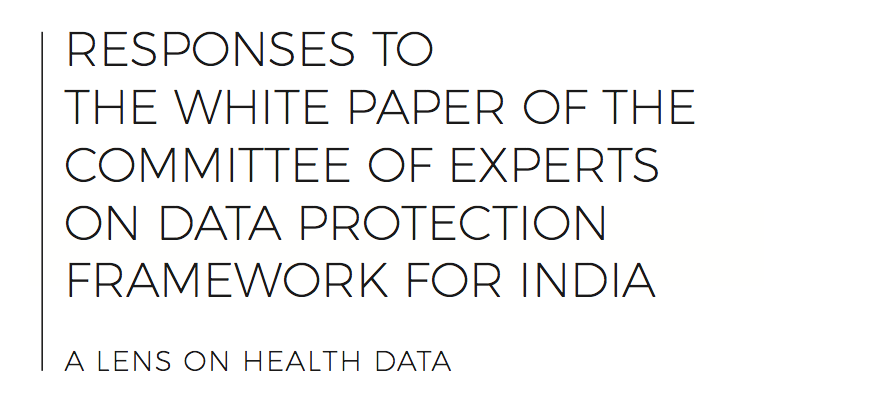In 2017, the Government of India constituted a special committee of experts chaired by Retired Supreme Court Justice Shri B. N. Srikrishna to study “various issues relating to data protection in India and make specific suggestions on principles to be considered for data protection in India and suggest a draft Data Protection Bill. The objective is to ‘ensure growth of the digital economy while keeping personal data of citizens secure and protected.’ ”
On November 2017, the Committee released a White Paper on Data Protection and solicited public comments. The Committee conducted town-hall meetings in Delhi, Mumbai, Hyderabad and Bangalore, and invited written submission via an online portal.
In response to this call for public review of the White Paper, the Harvard FXB Center for Health and Human Rights convened a group of experts from Harvard and from India. The Center submitted two briefs: one focused on health data, with expert contributions from industry, academia and advocacy groups; and a second focused on child protection, in line with the Center’s longstanding commitment to the protection and promotion of children’s rights.
Our reviews recognize that big data, artificial intelligence (AI), mobile phone, and cloud computing hold vast potential to advance medical research and healthcare delivery in India. Thwarting these technologies with restrictive legislation will preclude individuals from reaping the potential benefits of telemedicine, wearables, apps, AI, big data analytics, and automated services. And yet, health data are personal and sensitive, and the potential for harm from discrimination, denial of services, and violence is real. We submit that solutions that guarantee the rights of the individual should harness forward-looking technology. Privacy by design–technologies that guarantee accountability, harm prevention, transparency, and portability–are likely to have greater impact than architecture that relies solely on notice and consent. Above all, the law must adopt a flexible framework, because both technologies and cultural norms are changing at a rapid pace. A nimble framework that provides for revisions in sync with time and technological advances will bode well for India, allowing it to be a global player in health data science, medical research and health care delivery.
Yet, the significant digital divide and the well-documented lacunae in policy implementation in India militate against over ambitious technological fixes to basic social problems. Given the specificities of the Indian context, and in particular the erratic nature of infrastructure and energy provision, the gaps in political accountability at many levels of governance, and the vast social and economic inequalities that hamper effective accountability, care should be taken when citing US, EU and Australian practices as easily replicable models for contemporary India. With these caveats in mind, the Center offers comments on the White Paper through these two documents.
White Paper of the Committee of Experts on Data Protection Framework for India

